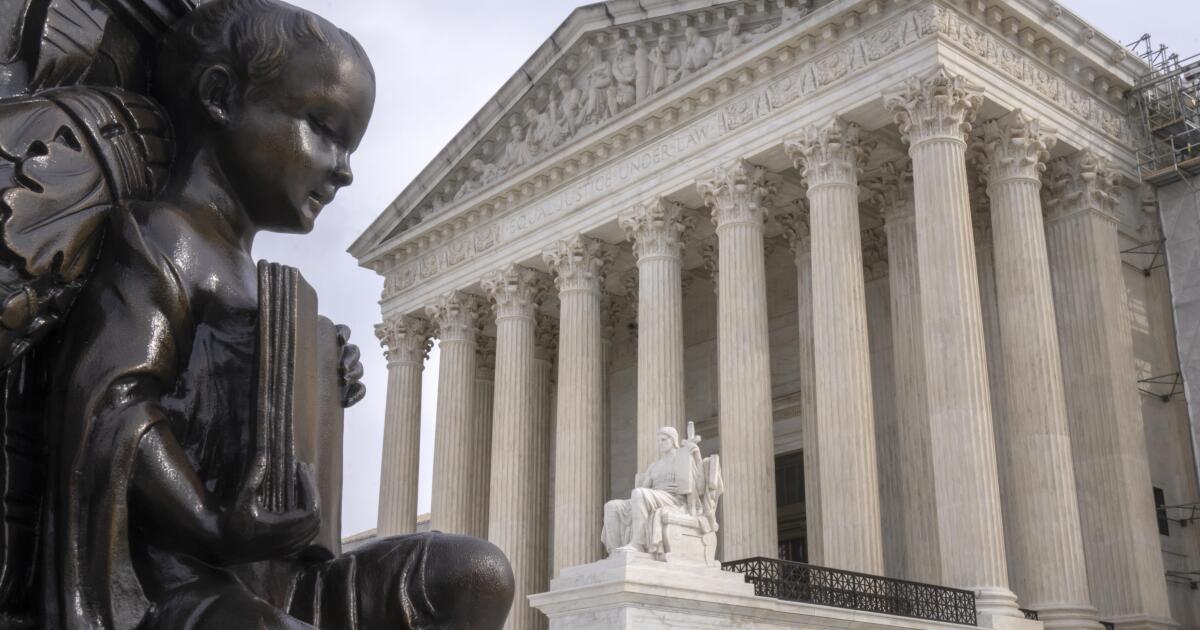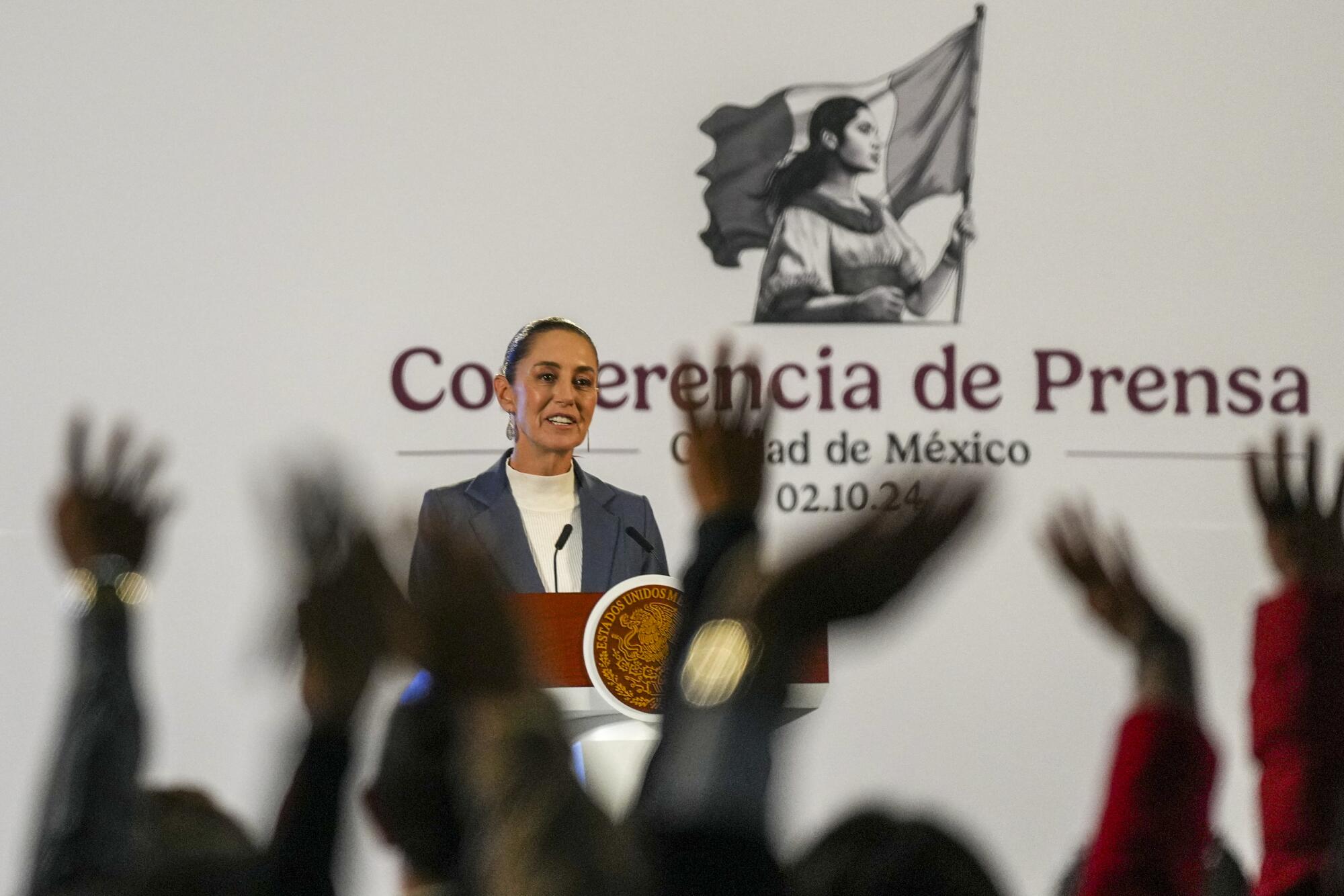
WASHINGTON — The U.S. Chamber of Commerce and other business groups urged the Supreme Court on Friday to block new California laws that will require thousands of companies to disclose their emissions and their impacts on climate change.
One of the laws is due to take effect on Jan. 1, and the emergency appeal asks the court to put it on hold temporarily.
Their lawyers argue the measures violate the 1st Amendment because the state would be forcing companies to speak on its preferred topic.
“In less than eight weeks, California will compel thousands of companies across the nation to speak on the deeply controversial topic of climate change,” they said in an appeal that also spoke for the California Chamber of Commerce and the Los Angeles County Business Federation.
They say the two new laws would require companies to disclose the “climate-related risks” they foresee and how their operations and emissions contribute to climate change.
“Both laws are part of California’s open campaign to force companies into the public debate on climate issues and pressure them to alter their behavior,” they said. Their aim, according to their sponsors, is to “make sure that the public actually knows who’s green and who isn’t.”
One law, Senate Bill 261, will require several thousand companies that do business in California to assess their “climate-related financial risk” and how they may reduce that risk. A second measure, SB 253, which applies to larger companies, requires them to assess and disclose their emissions and how their operations could affect the climate.
The appeal argues these laws amount to unconstitutional compelled speech.
“No state may violate 1st Amendment rights to set climate policy for the Nation. Compelled-speech laws are presumptively unconstitutional — especially where, as here, they dictate a value-laden script on a controversial subject such as climate change,” they argue.
Officials with the California Air Resources Board, whose chair Lauren Sanchez was named as defendant, said the agency does not comment on pending litigation.
The first-in-the-nation carbon disclosure laws were widely celebrated by environmental advocates at the time of their passage, with the nonprofit California Environmental Voters describing them as a “game-changer not just for our state but for the entire world.”
Sen. Scott Wiener (D-San Francisco), who authored SB 253, said at the time that the laws were “a simple but powerful tool in the fight to tackle climate change.”
“When corporations are transparent about the full scope of their emissions, they have the tools and incentives to tackle them,” Wiener said.
Michael Gerrard, a climate-change legal expert at Columbia University, described Friday’s motion as “the latest example of businesses and conservatives weaponizing the 1st Amendment.” He pointed to the Citizens United case, which said businesses have a free speech right to unlimited campaign contributions, as another example.
“Exxon tried and failed to use this argument in 2022 when it attempted to block an investigation by the Massachusetts Attorney General into whether it misled consumers and investors about the risks of climate change,” he said in an email. “Exxon claimed this investigation violated its First Amendment rights; the Massachusetts courts rejected this attempt.”
Under the Biden administration, the Securities and Exchange Commission adopted similar climate-change disclosure rules. Companies would have been required to disclose the impact of climate change on their business and what they intended to do to mitigate the risk.
But the Chamber of Commerce sued and won a lower court ruling that blocked those rules.
And in March, Trump appointees said the SEC would retreat and not defend the “costly and unnecessarily intrusive climate-change disclosure rules.”
The emergency appeal challenging California’s disclosure laws was filed by Washington attorney Eugene Scalia, a son of the late Justice Antonin Scalia.
The companies have tried and failed to persuade judges in California to block the measures. Exxon Mobil filed a suit in Sacramento, while the Chamber of Commerce sued in Los Angeles.
In August, U.S. District Judge Otis Wright II in Los Angeles refused to block the laws on the grounds they “regulate commercial speech,” which gets less protection under the 1st Amendment. He said businesses are routinely required to disclose financial data and factual information on their operations.
The business lawyers said they had appealed to the U.S. 9th Circuit Court of Appeals asking for an injunction, but no action has been taken.
Shortly after the chamber’s appeal was filed, state attorneys for Iowa and 24 other Republican-leaning states joined in support. They said they “strongly oppose this radical green speech mandate that California seeks to impose on companies.”
The justices are likely to ask for a response next week from California’s state attorneys before acting on the appeal.
Savage reported from Washington, D.C., Smith from Los Angeles.



